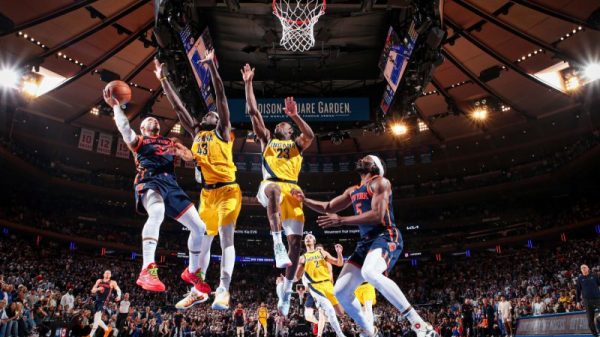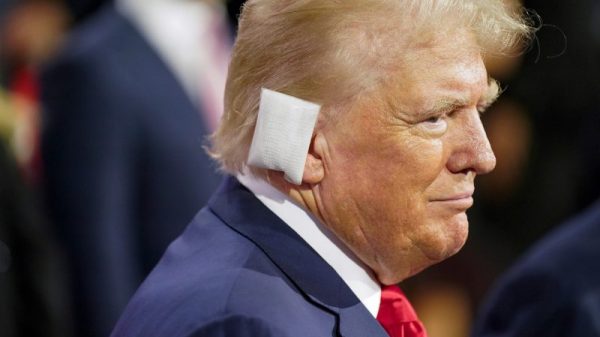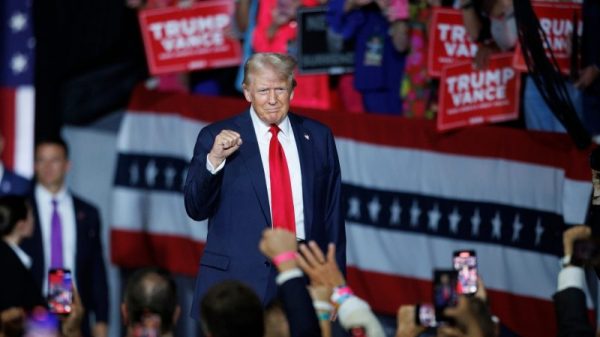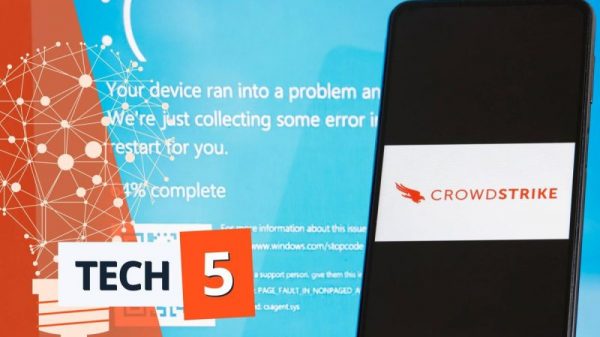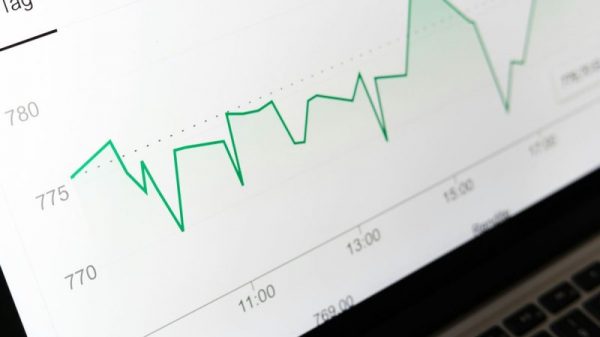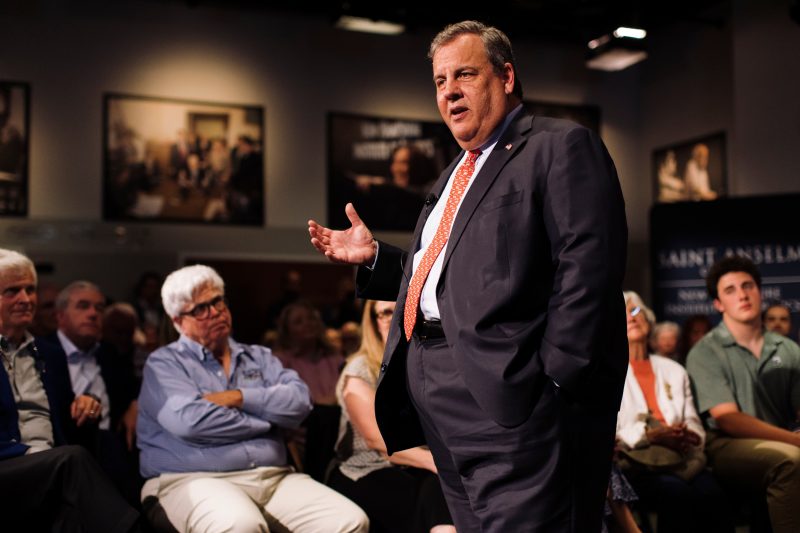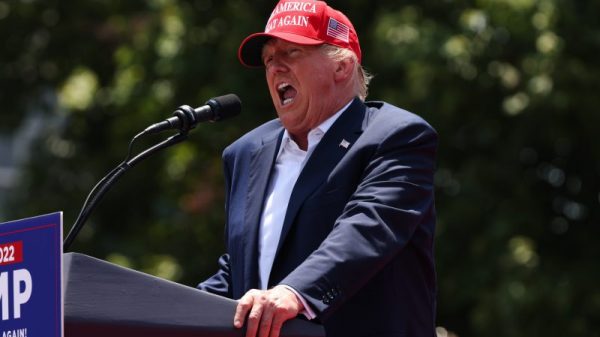One of the challenges of running in a party primary is that you have to maintain an air of possibility. This isn’t a general election, where members of your party will vote for you even if you don’t really have a shot. In a primary, voters generally want to back someone who has at least a shot at the nomination. For candidates, that means continuing to insist that you have a shot, even if you don’t.
At this stage of things, there’s an easy argument to make in that regard: We’re a long way away from voting. Predictably, we’ve heard variations of it more than once in recent weeks.
There was former New Jersey governor Chris Christie, who appeared on Fox News on Sunday.
“There’s a long way to go in this campaign,” he said on “Fox News Sunday.” “ … At this time in 2015, Donald Trump was at 4 percent. So I don’t think anybody should be worried about the polling right now.”
Then there was Florida Gov. Ron DeSantis, speaking to Fox News host Jesse Watters last month, saying that “most people aren’t paying attention.” Last week, in another interview, he added that he and his team “really haven’t started” making his case to primary voters.
It’s interesting that this same pitch is coming from candidates with very different positions in the polls. In RealClearPolitics’ average, Christie is at 2.5 percent compared with DeSantis’s 20.9 percent. To extend Christie’s analogy, a candidate having 20.9 percent of support in polling at this same point in 2015 would be leading the field. But DeSantis is not leading — he’s trailing former president Donald Trump by more than 30 points.
Christie’s talking point about Trump being at 4 percent has exceeded its expiration date; by this point in 2015 relative to the 2016 general, Trump was already at 9 percent and climbing. In fact, he was about to seize the lead from former Florida governor Jeb Bush — and hold onto it through the rest of the 2016 cycle, the entire 2020 cycle and every day of the 2024 cycle to date.
Fine. That’s what happened then. But are Christie and DeSantis right that things might shift in their direction?
Sure, in the abstract. Lots of things can happen. Trump could be abducted by Romulans. Who knows? But in a practical sense, there’s no reason to think that the state of play will shift in a way to make Christie viable — or even to make DeSantis successful.
Let’s look at six recent primary contests: the past four Republican primaries, and the Democratic ones in 2008 and 2016 that for months featured a presumptive winner, in both cases Hillary Clinton. On the charts below, each leading candidate is shown by the margin of his or her lead over the period from 600 days to 150 days before the general.
Notice that Trump’s current 30-point lead was achieved in past Republican nominating contests only after the fields began to narrow (2008 and 2012). Clinton was leading by more than 30 points at this same moment in the 2016 contest — but was already seeing that lead erode in the face of Sen. Bernie Sanders’s (I-Vt.) challenge.
The Sanders comparison is important because it reflects what it takes for an established candidate with a large lead to be challenged: outsider, insurgent status. Clinton was expected to win in 2016 and a lot of Democrats (and independents who vote with the party) were frustrated by that, by her moderate politics and by her cementing the support of the party establishment. Sanders was an outsider and, while he was dispatched fairly quickly once voting began, he mounted a remarkable challenge to the long-standing front-runner.
In 2016, Trump did something similar. His candidacy represented an outsider challenge to the party establishment. It built on the frustration with the establishment that had been eating away at Republican power since the emergence of the tea party. Trump shared this resentment that had been stoked by conservative media and spoke the language of insurgency. It worked.
In theory, then, you might see something similar this year. Trump is now the GOP establishment, presumably creating space for a challenge to his position.
But while Trump is the driver of the party agenda and rhetoric, he has been effective at still presenting himself in opposition to the party’s traditional power centers. He’s managed to preserve the idea that he is the voice of the outsider right, in part by successfully reframing his criminal indictments and investigations into his actions as establishment efforts to hold him at bay. He is the guy who will tear it all down … despite having been in a position to do so before and not doing it (as Christie noted at another point in his interview Sunday).
That’s DeSantis’s challenge. His candidacy was originally theorized by observers as a way to consolidate the anti-Trump vote, but that’s a vote that Trump has been effective at marginalizing as pro-establishment. So instead DeSantis is trying to run to Trump’s right, as a challenger to a front-runner that DeSantis is trying to frame as insufficiently right-wing. It’s a tough argument to make, particularly when Trump is so effectively driving the issues upon which primary voters are focused.
It’s not just that we’re early in the primary cycle — which we are — that matters. It’s also the composition of that cycle, who’s in, and what they represent. In 2008 and 2016, Clinton was challenged by outsiders who framed her as insufficiently responsive to the more liberal wing of the party. In 2016, Trump convinced Republicans that he was a vehicle for the dismantling of a party they disliked.
In June, The Washington Post’s Patrick Marley spoke to a party-activist-slash-conspiracy-theorist in Michigan named Jon Smith. He explained why he wasn’t fazed by party losses over the short term.
“People are embarrassed to say they’re Republican,” Smith told Marley. “The George Bush-type crowd, the Mitt Romneys, the John McCains, all these pompous, rich, White globalists really have crippled our name for a long time.”
Trump is seen as the antithesis of that strain of Republicanism. Unless DeSantis or Christie can not only position himself similarly but also strip that status away from Trump, it’s hard to see how 2024 will look much like 2016.
No matter how far away the election is.










